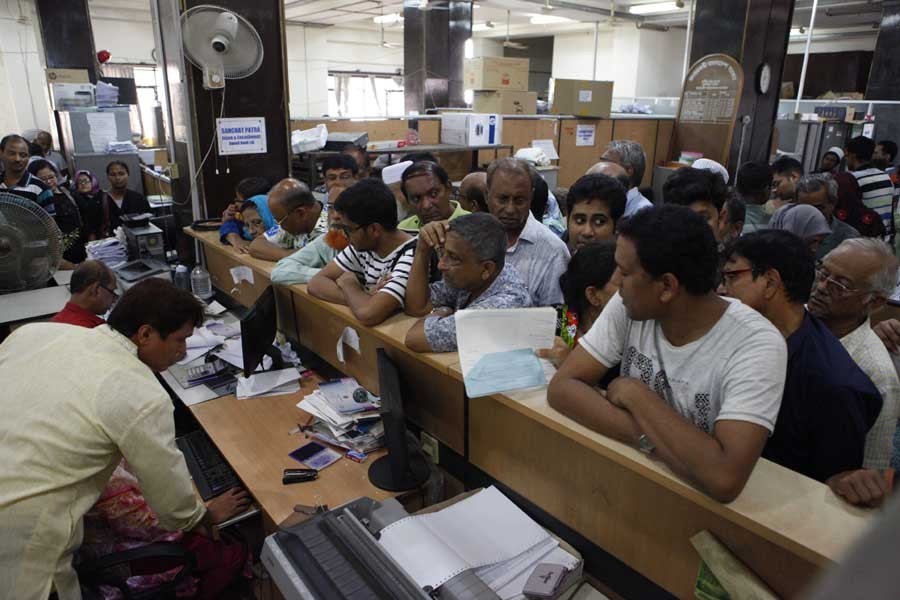Bangladesh's 36 per cent of banks still go banking on manual-documentation process in this digital era while another 46 per cent operate partly in digitised modes, a survey shows.
As a move toward sustainable digital transformation, 18 per cent of the banks only implemented the engineering of Digital Documentation Management System (DMS) to gradually replace manual file processing, reveals the survey titled 'Transformation and Restructuring of the Banking Sector in the New Normal: Bangladesh Perspective'.
Researchers at Bangladesh Institute of Bank Management (BIBM) also found 12 per cent of the banks unable to conduct meetings on virtual platforms, amid the pandemic, till December last year for "lack of adequate infrastructure".
However, 56 per cent of the banks have been conducting their meetings virtually since the pandemic hit the country while 32 per cent met virtually during the peak of the pandemic, according to the survey.
The study has been conducted among 41 of the banks in the country.
Dr Shah Md Ahsan Habib, Professor at BIBM, led the survey along with Prof Md Nehal Ahmed, Associate Professor Mohammed Sohail Mustafa CFA, Assistant Professor Antara Zareen, Assistant Professor Rexona Yesmin and Assistant Professor Tofayel Ahmed.
"Despite risks, 10 per cent of the banks use in-person communications due to their large customer base and capacity limitations," says the survey report.
Furthermore, rural bank locations were unable to implement alternative digital channels for client connections.
In 2021, the rostering arrangement was reduced in 49-per cent banks as both vaccine requirements were met by then, but in 2020, some 71-per cent banks were run through rostering process.
Some 13-per cent banks in 2021 and 14 per cent in 2020 ran the operations through mostly work-from-home arrangement, the survey found.
Another 17-per cent banks couldn't adopt online account opening, automated challan system for fee-based transactions, and online transactions for payment of installments and other banking charges for clients as part of the digital transformation during pandemic.
The BIBM study says there is no question that some of the most modern technological developments and associated techniques like using data analytics, artificial intelligence, and blockchain have huge potential to offer extensive benefits to the clientele.
The survey observed that market transformation would bring greater efficiency to financial intermediation, better product diversification, and better pricing with potential concerns in terms of systemic risk including technology-driven money laundering and cybersecurity risks.
"Adoption of technology might be the source of these risks and several financial-crime risks. However, embracing the technology can beget the best solution for handling these risks and financial crimes," says the banking academics' recommendation.
The survey also recommends that management of banks should set up their monitoring, capacity development, disclosure, and customer-protection arrangement to handle risks associated with their shadow banking activities and elements.
The paper states that transformation and restructuring processes in the banking industry require huge investment not only in technology but also in human-resource development.
"It is a big enterprise decision to invest a huge amount sacrificing the current returns for attaining long-term sustainable accomplishment," it concludes.


